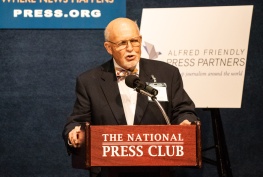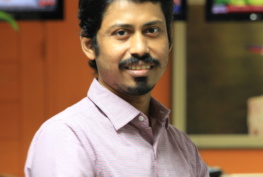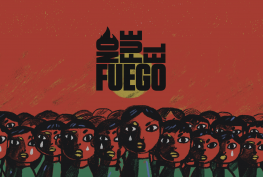By Emran Hossain
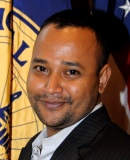 The first case of Covid-19 surfaced in Bangladesh last year on March 8, not far from where I work in the capital Dhaka.
The first case of Covid-19 surfaced in Bangladesh last year on March 8, not far from where I work in the capital Dhaka.
The onset of the virus in one of the most densely populated places on the planet frightened people who started hearing that the virus was spreading through the air. They also learned a new term – social distancing.
Initially it seemed like the end of the world as we know it. An invisible drape of silence fell on the city, which was deafeningly noisy even the day before.
Neighbors stopped greeting neighbors. Passersby refrained from looking into each other’s eyes, as they prepared to withdraw into their homes, seemingly for an indefinite period. Workplaces closed one after the other. Soon a nationwide lockdown was enforced with army checkposts set up at strategic locations.
At this point another frightening thought popped into my head: It was definitely the end of the world for broadsheet journalism — my livelihood, my love.
I worked at The Daily Star in Dhaka before the fellowship, and now report for New Age, an English-language daily based in Dhaka.
Even before the coronavirus emerged, the newspaper industry was already gasping for breath, suffocated by the expansion of online media and new laws curtailing freedom of expression. And now, all of a sudden, advertisements disappeared, and there were no visible regular activities to cover.
Daily newspaper owners immediately decided to reduce the size of their publications, bringing down the number of pages, and sacked dozens of journalists.
Pressure mounted on reporters because for the first time in their working lives all activities officially stopped. There was suddenly nothing obvious to cover unless you were a reporter assigned to health issues. I began looking up online how journalists in other countries covered the first days of pandemic to plan my own work.
The fellowship experience in 2013, which included five months of reporting for Huffington Post in Washington, made me more confident and assertive despite pressing challenges.
I spent hours glued to my laptop mining information and sharing it with local experts over the phone to put the data into perspective. I had confidence in computer-assisted reporting to which I was introduced as a Daniel Pearl Fellow.
I started writing about everything from weather reports to scarcities of toiletries and disinfectants. I reported that the use of diesel fuel suddenly fell by half and was continuing to drop, which overwhelmed storage operators because there was no place to put their pre-ordered fuel supplies.
Soon I felt I needed to go out on the streets. Journalists were not barred from going out during lockdown but restrictions on movement subjected them to many checks at security road blockades. I realized that the outside world must be crawling with people, the poor and homeless, the informal sector workers who used to live day to day but have been without work for a while.
Walkways in upscale neighborhoods where women strutted in designer dresses not long ago were now occupied by the destitute, who waited from morning to night for the rich to come out of their comfortable homes to help them. Most of them had dignified lives before the pandemic, holding low-paying jobs such as domestic help. They turned into beggars overnight.
There were people brawling in the streets over donated emergency relief supplies.
Neither the government nor non-government organizations had any plans to help homeless people.
Corruption and mismanagement undermined the government effort to feed the poor through subsidised open market shops.
And for months hospitals refused to accept patients with general diseases and health problems. A primary reason was that health providers did not having enough personal protective equipment.
Reports such as Bangladeshi scientists sequencing the coronavirus genome brought some relief.
But the bad news outweighed the good. Many people succumbed to greed even during the darkest of all times by, for example, supplying substandard PPEs to health service workers.
The government mechanically kept advising people on the importance of healthy eating habits staying cheerful. But its employees kept sending ghost power bills to consumers.
At mid-year, with the monsoon around the corner, there were piles of discarded PPEs at places in Bangladesh, reminding us that even a global pandemic was not enough to bring people to their senses. Waste management officials in Dhaka admitted they were unable to properly dispose the plastic garbage.
With inoculation going on full swing there is hope for normalcy to return soon, in terms of people being able to mingle like before. Officially, COVID-19 claimed 8,423 lives and infected 547,316 people here as of March 2. But the return to the pre-pandemic economic status would not be easy for Bangladesh because the pandemic made 24 million newly poor and left thousands jobless.
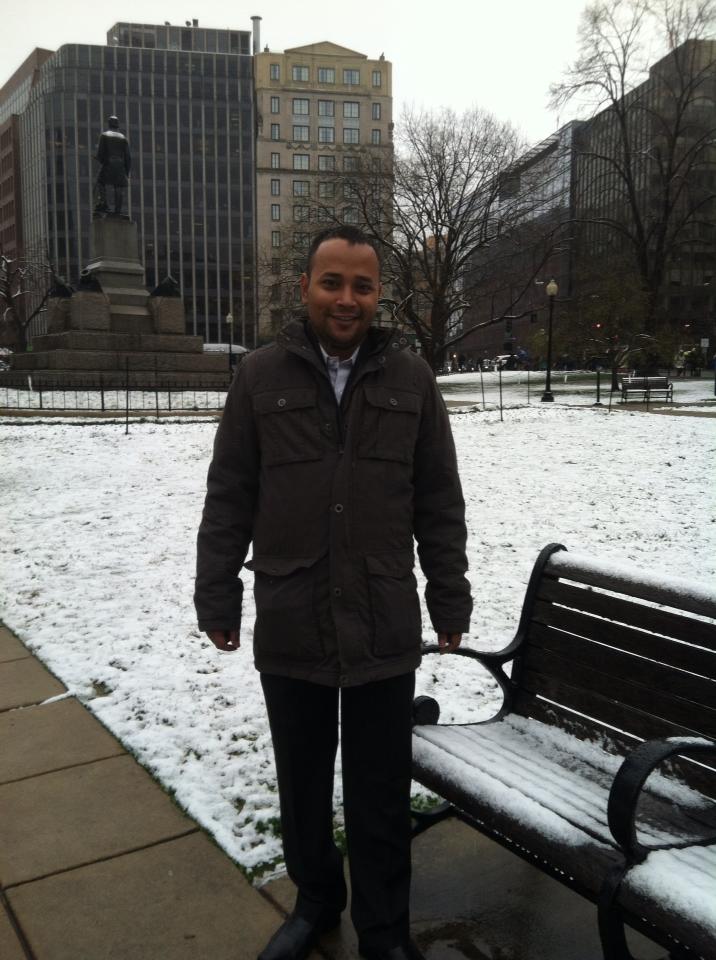 Emran Hossain at a park in Washington, DC, when he worked at Huffington Post. Hossain provided insight for Huff Post newsroom colleagues when he helped cover the deadly factory fires that took place in Bangladesh during his fellowship
Emran Hossain at a park in Washington, DC, when he worked at Huffington Post. Hossain provided insight for Huff Post newsroom colleagues when he helped cover the deadly factory fires that took place in Bangladesh during his fellowship

